Soteria House – Las Cruces, New Mexico
Soteria House – Las Cruces, New Mexico

ISEPP's past Executive Director, Al Galves, Ph.D., has been working hard on the development of a Soteria House program in New Mexico, named Soteria Las Cruces.

ISEPP's past Executive Director, Al Galves, Ph.D., has been working hard on the development of a Soteria House program in New Mexico, named Soteria Las Cruces.
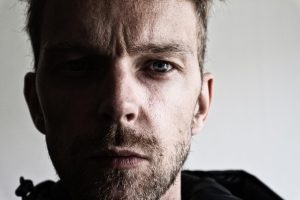 Didn't get a chance to attend the 2022 conference? No problem. Recordings of the presentations are available here.
Didn't get a chance to attend the 2022 conference? No problem. Recordings of the presentations are available here.
Don't miss out on an amazing lineup of speakers and their thoughts on the failed medical model of emotional distress.

During its annual conference this past weekend, ISEPP announced the winners of its three awards:
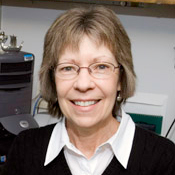 ISEPP Lifetime Achievement Award - for recognition of sustained and dedicated efforts made throughout one’s career in the struggle to overturn the medical model of human distress. Presented to Jacqueline Sparks, Ph.D.
ISEPP Lifetime Achievement Award - for recognition of sustained and dedicated efforts made throughout one’s career in the struggle to overturn the medical model of human distress. Presented to Jacqueline Sparks, Ph.D.
Click here to read the citation
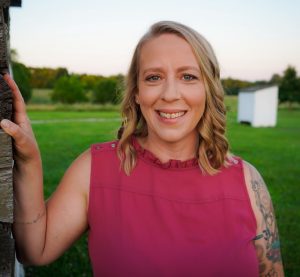 ISEPP Special Achievement Award - For recognition of specific projects and programs developed as alternatives to the orthodox mental health system. Presented to Angela Peacock, M.S.W.
ISEPP Special Achievement Award - For recognition of specific projects and programs developed as alternatives to the orthodox mental health system. Presented to Angela Peacock, M.S.W.
Click here to read the citation
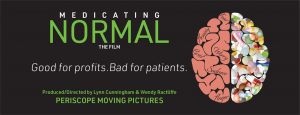 Mary Karon Memorial Award for Humanitarian Concerns - Named in honor of Mary Karon, wife of the late Bert Karon, who had been a lifelong activist psychologist and member of ISEPP. Mary and Bert were in a serious car accident in 2007, leaving Bert in need of constant and daily care. Mary provided that care with the hope of giving Bert the ability to continue in his fight against medicalized psychiatry. Mary died a few years later, making Bert promise that he would continue his work. This award is given to those who show a similar dedication to supporting the ISEPP mission. Presented to the directors and producers of Medicating Normal.
Mary Karon Memorial Award for Humanitarian Concerns - Named in honor of Mary Karon, wife of the late Bert Karon, who had been a lifelong activist psychologist and member of ISEPP. Mary and Bert were in a serious car accident in 2007, leaving Bert in need of constant and daily care. Mary provided that care with the hope of giving Bert the ability to continue in his fight against medicalized psychiatry. Mary died a few years later, making Bert promise that he would continue his work. This award is given to those who show a similar dedication to supporting the ISEPP mission. Presented to the directors and producers of Medicating Normal.

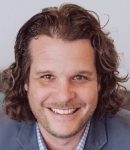 Listen to ISEPP's Executive Director Dr. Chuck Ruby being interviewed about his ideas on the mental health industry on Dr. Ben Rall's Designed to Heal Podcast.
Listen to ISEPP's Executive Director Dr. Chuck Ruby being interviewed about his ideas on the mental health industry on Dr. Ben Rall's Designed to Heal Podcast.
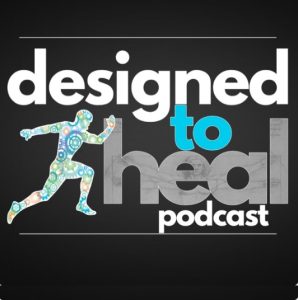
by Phil Sinaikin, M.D., M.A.
In an August 5, 2022 edition of The Week (an excellent magazine by the way) there is a brief article entitled “Reassessing depression” that reports the results of a recent study by Joanna Moncrieff and her colleagues. The opening line: “Depression may not be caused by a chemical imbalance in the brain, a new analysis of research says--a finding that could upend our understanding of the science behind antidepressants.” (p.21, italics mine)
HUH? HUH???
A new analysis? It’s been decades since we have officially debunked the chemical imbalance theory of depression and all other psychiatric “disorders.” How can this possibly be news now?
It is because it has nothing to do with science or research. What this is about is the social construction of “truth” independent of facts or science.
Those of us living in the current political environment of the past few years are acutely aware of this phenomenon: Pick a leader and trust them and what they claim. Don't trust your lying eyes. Don't be skeptical. Don't demand evidence. Don't think for yourself.
The institution of psychiatry is one of these leaders in our world, and it has unjustifiably attained that position of authority by sinking its tentacles into every aspect of life. It is fed by guild interests and financial gain, based on a lie, but has built itself to look like a shining city on the hill, when, in fact, that city is an alluring facade with no foundation. It is more like the seductive but inescapable hotel in the Eagles' song "Hotel California."
Psychiatry demands we trust it and its claims of personal disorder and illness. But it discourages us from asking the hard questions that would be demanded by science and logic. Chief among these is: Where is the evidence of brain disorder? So far, no such evidence has ever been found, despite decades upon decades of claims to the contrary. But psychiatry knows that one of the best marketing techniques is repetition - just ask Joseph Goebbels. It also knows that the best way to silence dissent is to attack the dissenters, like Dr. Moncrieff and her colleagues, who speak up about this charade.
And this is why the above "revelation" about depression seems to be news.
I am no longer practicing traditional psychiatry. My job now is prescribing medical marijuana exclusively. But as such I am kept acutely aware of the ongoing polydiagnosis, polypharmacy practices of psychiatrists. How often I see poor victims of this now seeking an alternative in medical marijuana? Very often. Usually after numerous medication trials rife with undesired side-effects (except of course for legal methamphetamine, Adderall, for recently diagnosed adult ADD).
So what do I want to say here? What can I say? I’ve already said it in my 375-page 2010 book Psychiatryland. From what I am seeing this book and numerous others critical of the medical model has done little to change psychiatric thinking or practices.
Perhaps the reason is best summarized by the final sentence in the above article in The Week: “The use of these medicines is based on clinical trial evidence,” says Allan Young, from Kings College London. “This review does not change that.” And I would add: nor his ability to make a good living practicing psychiatry.
By the way, notice the article doesn't say "Depression is not caused by a chemical imbalance in the brain." The power of psychiatry still has a hold on people's thinking, even in the face of incontrovertible evidence, enough to force "Depression may not be caused by a chemical imbalance in the brain."
I'll leave on a somewhat positive note. In the article it is stated: “Instead the researchers found a strong link between depression and negative life events.” To that I say No s**t Sherlock.
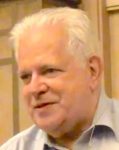 Phil Sinaikin, M.D., M.A., is a psychiatrist who has been in clinical practice in numerous venues for over 35 years. He has been involved in the critical psychiatry movement for many years. He has published critical, humanistic and philosophical articles in peer reviewed journals and books. He is also the author of Psychiatryland, a comprehensive consumer friendly examination of what has gone so terribly wrong in psychiatry and what, if anything, can be done about it.
Phil Sinaikin, M.D., M.A., is a psychiatrist who has been in clinical practice in numerous venues for over 35 years. He has been involved in the critical psychiatry movement for many years. He has published critical, humanistic and philosophical articles in peer reviewed journals and books. He is also the author of Psychiatryland, a comprehensive consumer friendly examination of what has gone so terribly wrong in psychiatry and what, if anything, can be done about it.
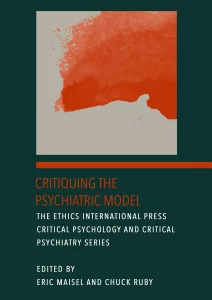 The Ethics International Press has recently released the first two volumes of a critical psychology and critical psychiatry series: Critiquing the Psychiatric Model and Humane Alternatives to the Psychiatric Model.
The Ethics International Press has recently released the first two volumes of a critical psychology and critical psychiatry series: Critiquing the Psychiatric Model and Humane Alternatives to the Psychiatric Model.
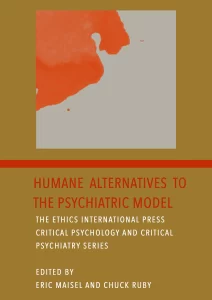 Act now to get your copies. Don't miss out on an opportunity to hear from some of the brightest thinkers in the field.
Act now to get your copies. Don't miss out on an opportunity to hear from some of the brightest thinkers in the field.
by Joe Tarantolo, M.D.
What is “mental health”?
What is “mental illness”?
No, I don’t like the terms either.
Let’s narrow it down some. How does one define health since the advent of "Humanism"? I’m defining humanism as simply the philosophical position that MAN IS THE MEASURE OF ALL THINGS. It is that position contrary to religious ideas that God defines what is right, and humans follow.
A few hundred years ago, health, in western culture, would most likely be, at least in part, a religious question. That’s for another time to consider since many patients do present with religious and biblical issues: "I am a messenger of God," "The Virgin Mary is a lover of mine," "God has chosen me," "My family has disowned me for marrying a----," etc.
The current psychiatric orthodoxy as reflected in the Diagnostic and Statistical Manual of Mental Disorders (DSM) gives us illnesses and diseases defined by committee.
Except for the dementias, there is no scientific way of making these diagnoses. For the most part, and at best, what the committee defines are arbitrary clusters of symptoms: anxiety, depression, panic attacks, bulimia, psychoses, personality features, etc.
So, the DSM does a good job of describing hundreds of SYMPTOMS, and these are symptoms of alleged mental illness because the committees say so. Okay. If they are the symptoms, then what is the illness? That is the challenge I propose to my colleagues.
I will give my very simple definition of mental health. It is THE CAPACITY TO SUFFER! And mental illness is the flight from suffering. The DSM simply lists the in- numerable ways to avoid suffering. Whether it is the psychotic flight , vomiting food to keep oneself pretty, panic instead of facing fear, dissociating, etc.
So, colleagues, what is your simple definition? What is mental health and mental illness?
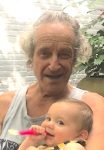 Dr. Tarantolo is a graduate of Mt. Sinai Medical School and a board-certified psychiatrist. He has been in practice for more than three decades on Capitol Hill in Washington, D.C., where his practice is dedicated to psychotherapy and helping patients withdraw from psychiatric drugs. Dr. Tarantolo has helped hundreds of patients come off psychiatric drugs through individual and group psychotherapy, herbal remedies, meditation, nutrition, and spiritual counseling.
Dr. Tarantolo is a graduate of Mt. Sinai Medical School and a board-certified psychiatrist. He has been in practice for more than three decades on Capitol Hill in Washington, D.C., where his practice is dedicated to psychotherapy and helping patients withdraw from psychiatric drugs. Dr. Tarantolo has helped hundreds of patients come off psychiatric drugs through individual and group psychotherapy, herbal remedies, meditation, nutrition, and spiritual counseling.
ISEPP's action committee, CAMPP, sent an Open Letter to the five major mental health member organizations in Washington, DC, demanding answers about the flawed medical model of mental distress. The letter was signed by over 150 practitioners and academics of the mental health professions.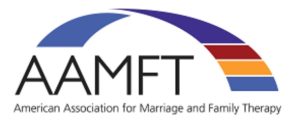
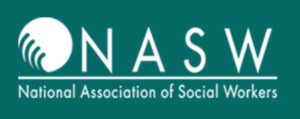

![]()
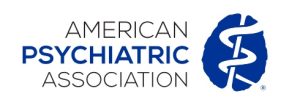
The letters (and emails) were dispatched July 8, 2022. There has been no reply from any of the organizations.
CAMPP plans to contact several national media outlets about this effort and urge their coverage.
 ISEPP has joined several other international groups calling for the American Psychological Association (APA) to apologize and provide reparations to the victims and families of the U.S. "war on terrorism." The APA and some of its member psychologists were complicit with the military from the early 2000s on, supporting the inhumane torturous treatment of prisoners at Guantanamo Bay and other black sites. This was a dark stain on APAs reputation, and they have been very reluctant over the years to admit and atone for their involvement in this human rights debacle.
ISEPP has joined several other international groups calling for the American Psychological Association (APA) to apologize and provide reparations to the victims and families of the U.S. "war on terrorism." The APA and some of its member psychologists were complicit with the military from the early 2000s on, supporting the inhumane torturous treatment of prisoners at Guantanamo Bay and other black sites. This was a dark stain on APAs reputation, and they have been very reluctant over the years to admit and atone for their involvement in this human rights debacle.

ISEPP's 24th annual conference will be held October 29-30, 2022 between 12pm and 6pm U.S. Eastern time.
This year's title is: A Paradigm Shift: From Pathologizing to Valuing Emotions.